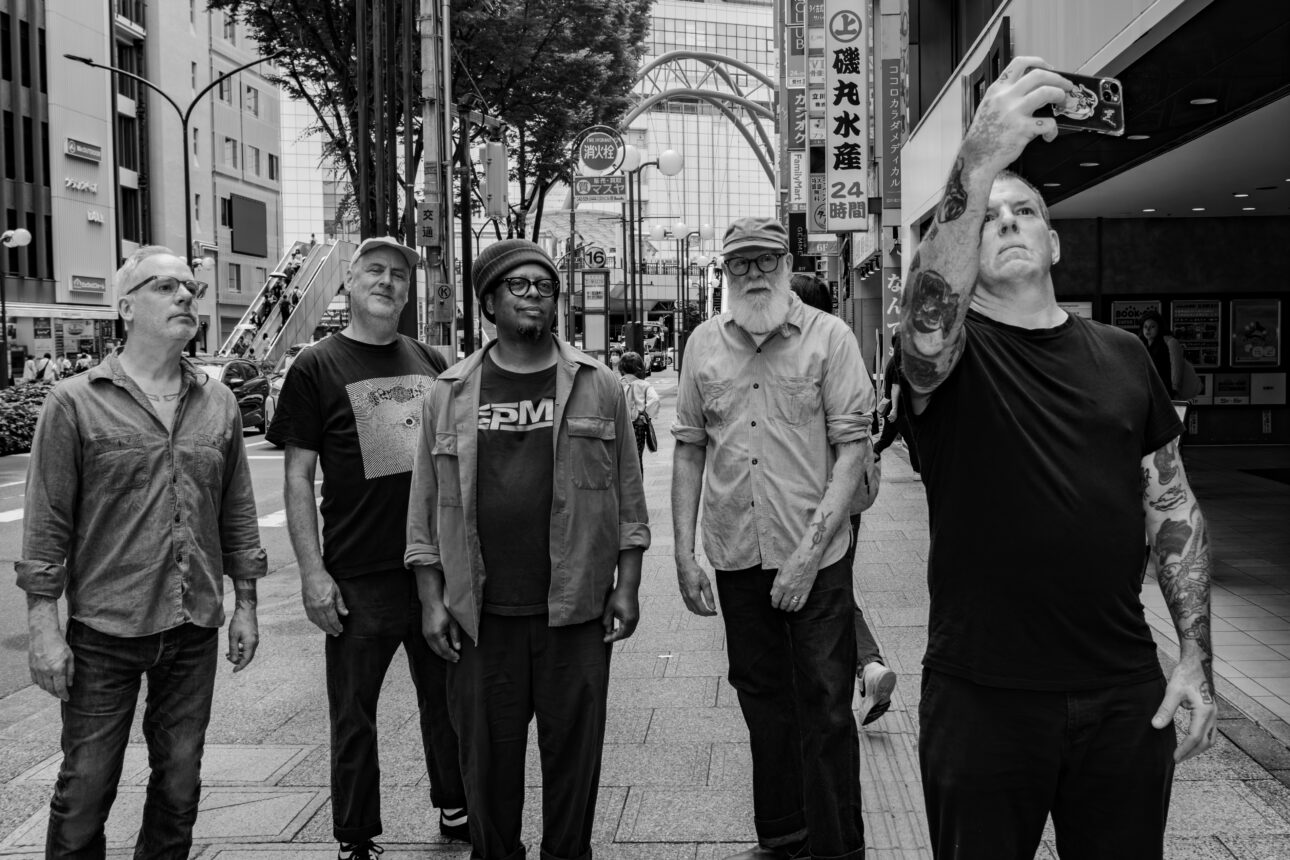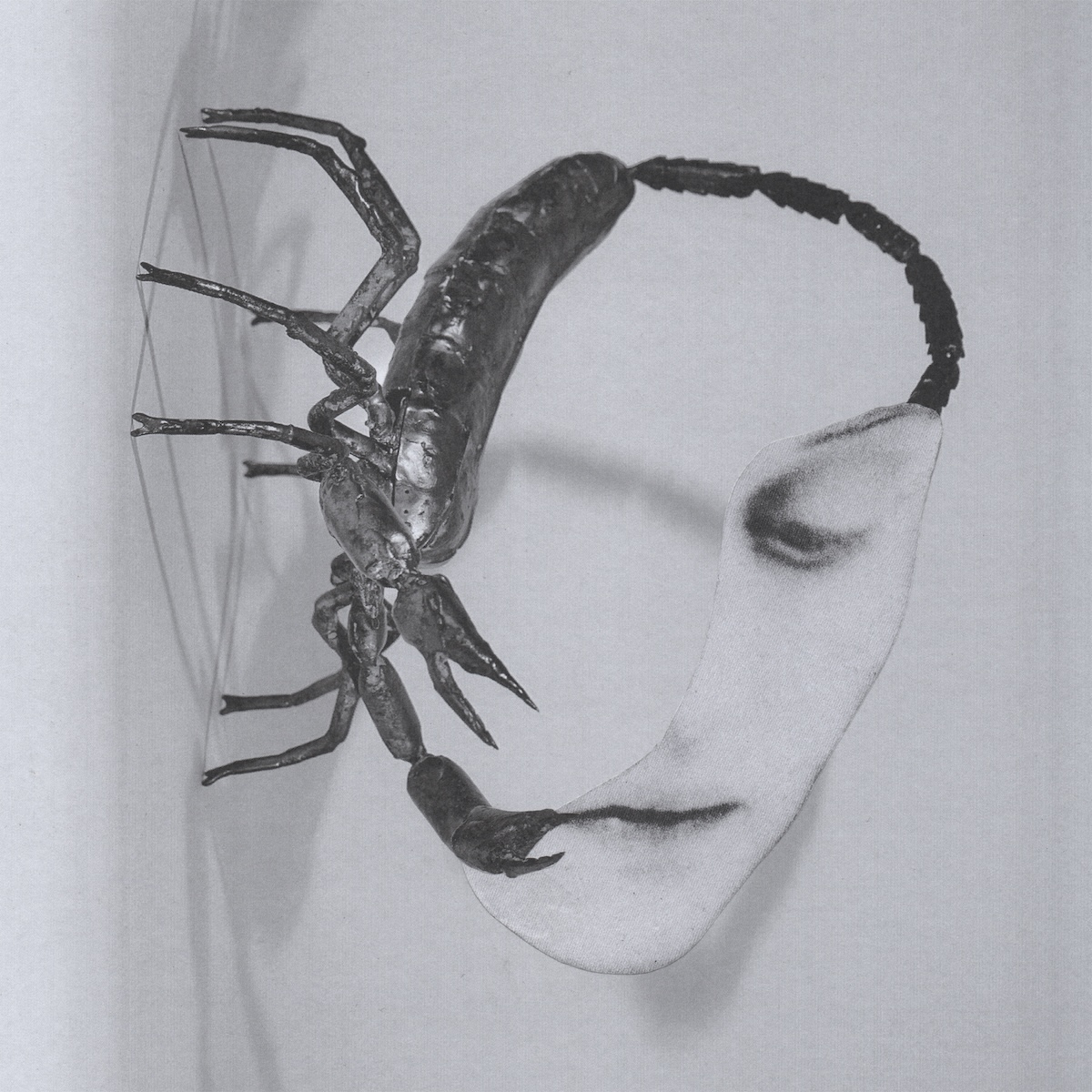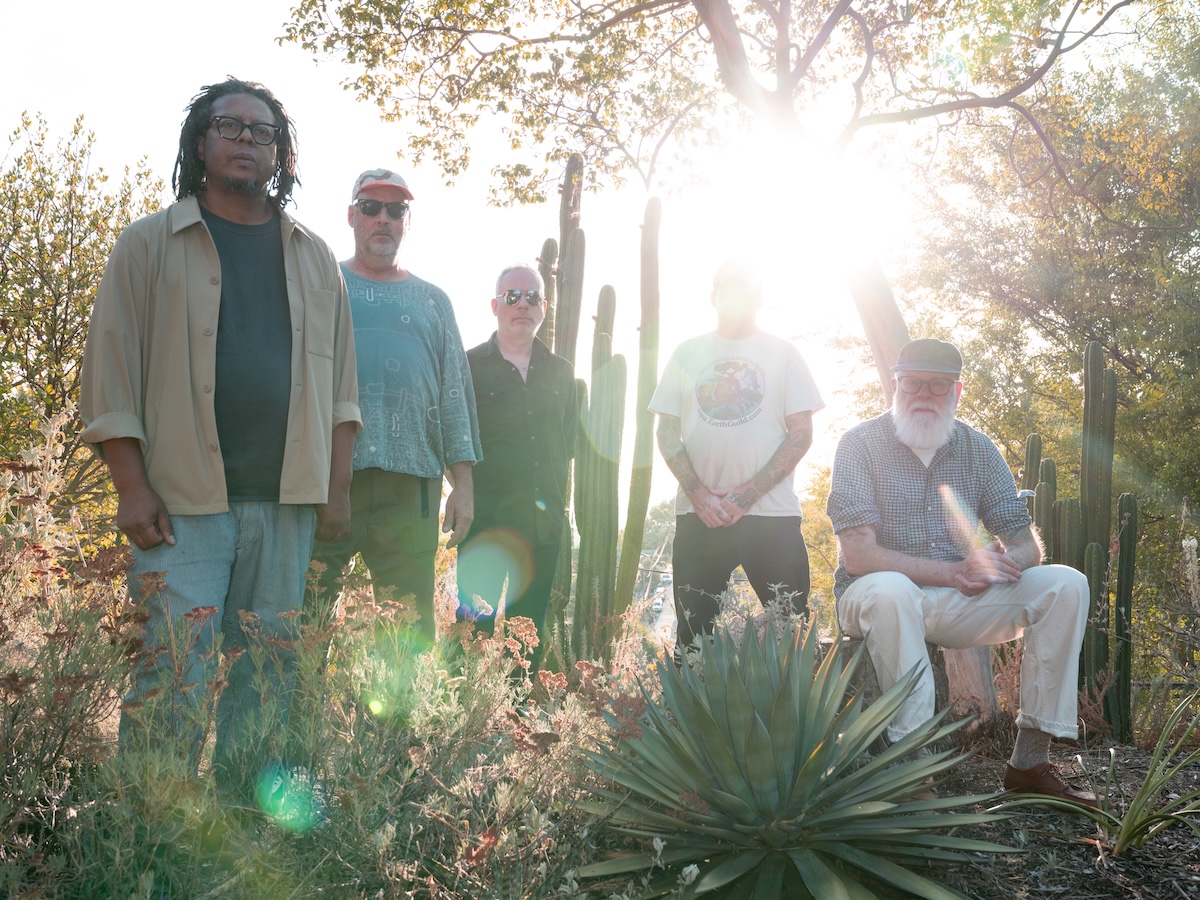Tortoise has done a lot in their 30+ years as a band. In the ‘90s, they became standard-bearers of the Chicago scene, their unusual instrumentation (three percussionists, two bassists) and eclectic palette (jazz, dub, EDM, prog) helping define a major wing of the instrumental post-rock genre. Their expansive 1998 album, TNT, with its cover doodle of a discombobulated, macrocephalic humanoid, has achieved icon status. They’ve done a soundtrack—the 2011 low-budget horror film Lovely Molly—and been featured in a video game; certain versions of Grand Theft Auto: Chinatown Wars devoted an in-game radio station to the band. But there’s one milestone the band has left to reach: an appearance on a late-night talk show.
“Tortoise did have a champion at, I believe it was ‘Conan O’Brien,’” bassist-guitarist Doug McCombs tells me, in a joint video call with percussionist and multi-instrumentalist John Herndon. “Every time we put out an album,” McCombs recalled, NBC’s Tortoise fan “tried to get us on the show. And then the producers would say, ‘Who do we point the camera at?’”
More from Spin:
- Rosalía Gets Surreal In ‘Berghain’ Video
- ‘Cornucopia Live’ Captures Björk At the Height of Her Live Power
- Mumford & Sons ‘Band’ Together With Hozier
“NEXT!” Herndon interjects, mimicking the voice of a dismissive entertainment honcho.
Despite the band’s strenuous avoidance of a focal point, which extends to their aversion to genre boundaries, conventional songwriting structure, and general rock fundamentals, Tortoise has managed to thrive even as the commercial media that spurned them declines. Their 1996 album, Millions Now Living Will Never Die, and TNT would be enough to cement their status as cult heroes—but 2001’s Standards and 2004’s It’s All Around You pushed their sound in fruitful new directions, exploring electronic dynamism and immersive ambience, respectively. The band slowed down after that, releasing only two albums between 2004 and 2016, but kept the flame alive and the fanbase growing with tours, festival appearances, and special projects.

“There’s no pressure on us to push out records,” McCombs says. “We can just keep doing stuff at our own pace, when we want to. We can adapt to situations.” This low-impact lifestyle has kept the band from burning out but has occasionally come with a downside. “Often, I’ll run into people that I know pretty well that are surprised Tortoise is still together,” McCombs admits.
Even longtime Tortoise followers may be surprised by Touch, the band’s hard-driving, buoyant, and melodic new album co-released by scrappy Chicago jazz label International Anthem and highbrow heavyweight Nonesuch Records. “This was definitely different,” McCombs says of Touch. “I am not quite sure [about it] yet, but I know I’m happy with the results.”
If the beat-forward thump and nervy, vibrant riffage of Touch tracks like “Elka” and “Vexations” sound like the work of a different, hungrier band, numbers like the chilled-out, vibraphone-led “A Title Comes” or the booming, percussive sway of “Promenade à deux” recall the classic Tortoise sound, equal parts jazz fusion, mood music, and art-rock. It’s an album of departures, returns, risks, and reliability, with the changes due in most part to the band’s altered circumstances: The five members of Tortoise no longer live in the same place. Guitarist Jeff Parker has been in L.A. since 2013, but since then, Herndon has also moved there (he was slightly late for the interview due to traffic), while percussionist-keyboardist-mixing engineer John McEntire relocated to Portland, Oregon. Only McCombs and percussionist Dan Bitney remain in Chicago. This understandably forced the band to modify their recording process.

“We had to make plans to get together. We didn’t really want to do anything too email-oriented,” McCombs says. “We more thought it was important to try to be together someplace.” This alone might explain the immediacy of Touch tracks like “Layered Presence,” which sizzles and writhes in a way that Tortoise songs rarely do. But as always with a counterintuitive band like Tortoise, there’s a little more to it. The band got together in their respective home bases for several recording sessions, with ideas gradually coalescing and songs slowly consolidating. “Each time, we evaluated where we thought we were and what needed to happen next,” Herndon says. “And we just kind of rolled with it.”
That combination of careful consideration and going with the flow might sound contradictory, but that’s just part of the Tortoise method, which blends composition, improvisation, in-studio sparks, and heavy post-production work. “That last push toward the end of a record, for Tortoise, is where a lot of the interesting things happen,” McCombs says. “We would normally all be sitting in a room together listening to the stuff while it’s mixed, and throwing out suggestions, and sometimes drastically changing things, coming up with new arrangements … all up until the very end. This time, it didn’t seem like it was going to be possible to do that the way we had in the past.”
Instead, the band spent five days in McEntire’s in-home studio in Portland, where “we got a lot of the really big stuff out of the way, and the rest we just sort of did by email,” McCombs says. “The last, I would say, six months of listening to and revising mixes, it just took a lot of patience … We had to improve our communication skills. We had to be in touch with each other and how we described certain elements of what was happening.”
Even with the album in the can, the flow of communication continues, with McCombs and Herndon discussing alterations to a percussion track on “Vexations” during the interview. “There was a drum part that I really liked and no one else really liked, even the person that played it,” McCombs recalls. “And then John Herndon took that track and reworked the entire track on his own.”

“I didn’t know Doug was so enamored with the part that I played, that I decided to replace,” Herndon interjects. After some mild prodding from McCombs that hints at the back-and-forth nature of Tortoise communication, Herndon delivers some more details: “I listened to the thing, and all I could hear was Stan Lynch playing it. So I was like, I’m just going to try to play it with a big old pocket.”
If Herndon’s mention of Lynch, the Tom Petty and the Heartbreakers drummer, surprises you, that’s just part of the Tortoise process—disagreements lead to conversation and conversation leads to unexpected innovations and revelations. In the course of our conversation, another unusual Tortoise touchstone emerges: Devo. “They’re really huge to me,” McCombs says of the pioneering new wave outfit, with Herndon mentioning that he’s seen the recent documentary about the band twice. “Isn’t the story that you saw them on ‘Saturday Night Live,’ and the next day you went out and bought a bass?’” Herndon asks McCombs. “No, I went out and bought my first record,” McCombs replies.
More than 30 years later, the band’s still talking, and continuing to find new things to say. “I feel like as long as we take our time and only work on stuff when it seems like we want to, then there’s no reason for the band to ever end,” McCombs says.
And there’s still that one pinnacle yet to reach: late-night fame. “My ground-floor experience was seeing Devo on ‘SNL’,’ I always wanted to play ‘SNL.’ That was my only goal in life, to play on that show,” McCombs says.
Lorne Michaels, get moving, and make sure you talk to the camera person first.
To see our running list of the top 100 greatest rock stars of all time, click here.



